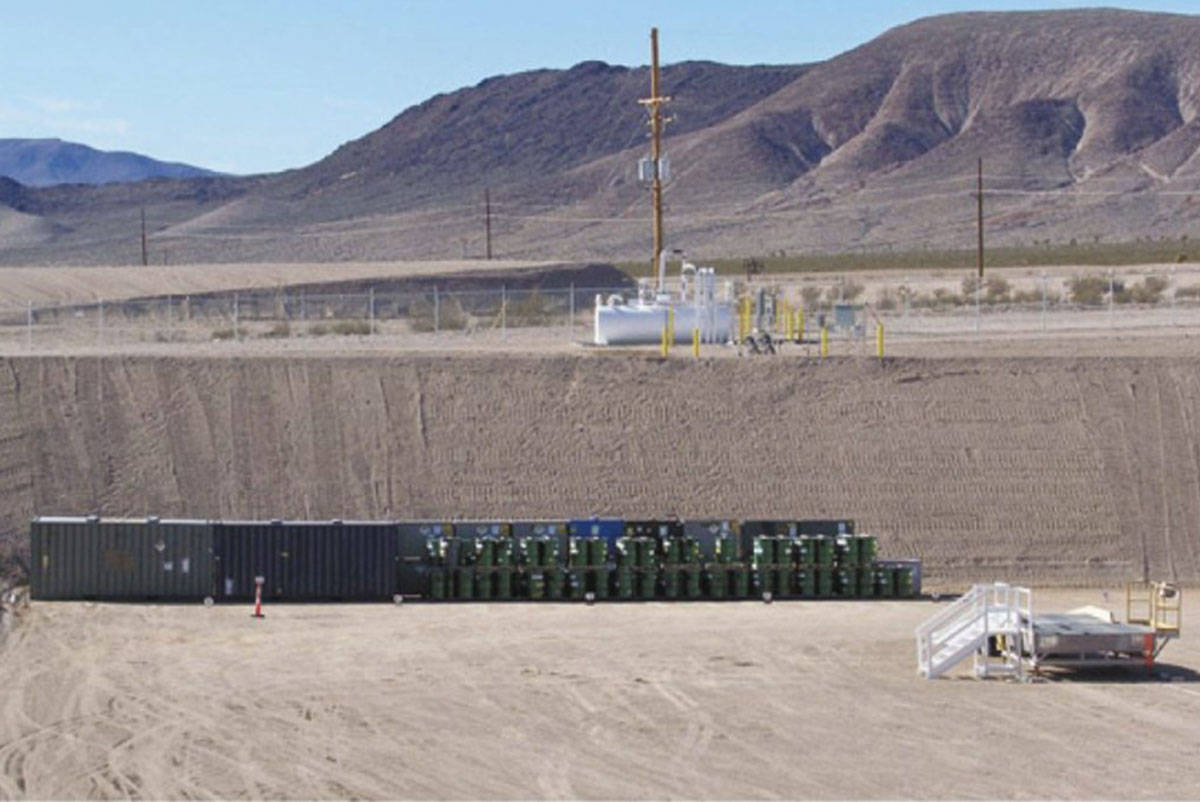Nevada, Energy Department reach agreement on radioactive waste
WASHINGTON — The state of Nevada and the U.S. Department of Energy signed a consent agreement forcing the federal government to change procedures after it failed to fully describe the contents of some low-level radioactive waste shipments to the Nevada National Security Site between 2013 and 2018, officials said Thursday.
The agreement by the Nevada Division of Environmental Protection allows 33 packages of unapproved waste to remain at at the site. It also requires the government to reimburse the state $65,000 for its investigation after Nevada was finally notified by the Energy Department of the error in describing shipments from a national security complex in Oak Ridge, Tennessee, between 2013 and 2018.
Energy Department officials agreed to a number of changes to better screen, identify and label waste so that similar mistakes are not repeated in the future.
“Although DOE’s unapproved waste disposal was an unfortunate misstep, we are thankful that this experience has helped lead the way to significant improvements that will further protect public health and the natural environment for generations to come,” said Greg Lovato, the state’s environmental protection administrator.
The type of waste is classified, but it is weapons related, Lovato said.
The consent agreement includes language to prevent the state and the Energy Department from taking legal action.
“The final agreement builds upon the department’s continued commitment to enhancing the rigor of its waste management activities for the protection of the DOE workforce, the public, and the environment,” an Energy Department spokesman said in a statement.
Once the Energy Department notified the state about the unapproved shipments, the Division of Environmental Protection conducted an investigation and determined the federal government violated a waste permit requirement, and failed to ensure that characteristics of the waste were accurately documented.
When the Energy Department discovered the potential violations in 2019, it conducted a department-wide assessment of procedures and practices to prevent waste shipment missteps from occurring in the future.
Tensions between the state and the Energy Department escalated in 2019 with the disclosure of the error, prompting Rep. Steven Horsford, D-Nev., to call for the resignation of Energy Secretary Rick Perry.
The disclosure of the shipment from Tennessee followed a separate, secret shipment of one-half metric ton of weapons grade plutonium from an Energy Department facility in South Carolina to Nevada. The department was under federal court order to move the plutonium.
But the low-level shipment from South Carolina occurred as Nevada was preparing a federal lawsuit to stop the plutonium shipment to the state. An agreement between Perry and Sen. Catherine Cortez Masto, D-Nev., was reached to move the plutonium out of Nevada beginning in 2021.
A federal court also ruled for Nevada and ordered the Energy Department to remove the weapons-grade material from the state.
The shipments from Tennessee and South Carolina were not related, but drew the ire of Nevada officials who argued the Energy Department under the Trump administration acted in bad faith.
Contact Gary Martin at gmartin@reviewjournal.com. Follow @garymartindc on Twitter.
A previous version of this story inaccurately reported the Energy Department failed to tell the state of Nevada about low-level waste shipments; the shipments were disclosed to the state, but the contents of some were not fully described. It also misstated the dates of those shipments; they took place between 2013-2018.























